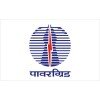Filter interviews by
Paras Energy Electrical Engineer Interview Questions and Answers
Paras Energy Electrical Engineer Interview Experiences
1 interview found
(2 Questions)
- Q1. Mention and explain the power triangle
- Ans.
The power triangle is a visual representation of the relationship between real power, reactive power, and apparent power in an AC circuit.
The power triangle shows the relationship between real power (P), reactive power (Q), and apparent power (S) in an AC circuit.
Real power (P) is the actual power consumed by the circuit and is measured in watts.
Reactive power (Q) is the power that flows back and forth between the circ...
- Q2. Size of cable used in 132kv transmission line
- Ans.
The size of cable used in a 132kV transmission line depends on factors like current carrying capacity, voltage drop, and environmental conditions.
The size of cable is determined based on the current carrying capacity required for the transmission line
Factors such as voltage drop and environmental conditions also play a role in determining the size of the cable
Common sizes of cables used in 132kV transmission lines incl
Top trending discussions






Interview questions from similar companies

Electrical Engineer Interview Questions & Answers
Saatvik Green Energyposted on 11 Jan 2024
I applied via Recruitment Consulltant and was interviewed in Aug 2024. There was 1 interview round.
(2 Questions)
- Q1. What is HVAC system ?
- Ans.
HVAC system stands for Heating, Ventilation, and Air Conditioning system, used to control temperature, humidity, and air quality in buildings.
HVAC system is responsible for heating, cooling, and ventilating indoor spaces.
It helps maintain comfortable temperature levels and air quality.
Examples of HVAC components include furnaces, air conditioners, heat pumps, and ventilation systems.
Regular maintenance of HVAC systems
- Q2. Deference between transformer and DG
- Ans.
Transformers are used to change voltage levels in AC circuits, while DG sets are used to generate electricity independently.
Transformers are passive devices that transfer electrical energy between two or more circuits through electromagnetic induction
DG sets, or diesel generators, are active devices that generate electricity using a diesel engine
Transformers are used to step up or step down voltage levels in AC power d...

Electrical Engineer Interview Questions & Answers
CleanMax Enviro Energy Solutionsposted on 10 Feb 2024
I applied via Campus Placement
(7 Questions)
- Q1. Basic law of governing transformer
- Ans.
The basic law governing transformers is the law of electromagnetic induction.
The law states that when the magnetic field around a conductor changes, an electromotive force (EMF) is induced in the conductor.
This EMF can cause a current to flow if the conductor forms a closed loop.
In a transformer, this principle is used to transfer electrical energy from one circuit to another through electromagnetic induction.
The prima...
- Q2. What are various losses in transformer
- Ans.
Various losses in a transformer include copper losses, iron losses, and stray losses.
Copper losses occur due to resistance in the transformer windings.
Iron losses, also known as core losses, occur due to hysteresis and eddy currents in the transformer core.
Stray losses occur due to leakage flux and stray capacitance in the transformer.
Copper losses and iron losses are the major contributors to total losses in a transfo...
- Q3. Difference between AC and DC
- Ans.
AC and DC are two types of electrical current. AC changes direction periodically while DC flows in one direction.
AC stands for Alternating Current and DC stands for Direct Current.
AC changes direction periodically, typically in a sinusoidal waveform.
DC flows in one direction only, maintaining a constant polarity.
AC is used for power transmission over long distances due to its ability to be easily converted to different...
- Q4. What is mean by inverter and its basic working
- Ans.
An inverter is a device that converts DC power to AC power.
An inverter is commonly used in electrical systems to convert the direct current (DC) produced by sources such as batteries or solar panels into alternating current (AC) that can be used to power appliances and devices.
The basic working principle of an inverter involves the use of electronic components such as transistors to switch the DC input on and off rapid...
- Q5. What all component are required in solar panel installation and brief them
- Ans.
Solar panel installation requires several components including solar panels, inverters, mounting systems, wiring, and electrical protection devices.
Solar panels: These are the main components that convert sunlight into electricity.
Inverters: They convert the direct current (DC) produced by solar panels into alternating current (AC) that can be used in homes or fed into the grid.
Mounting systems: These are used to secur...
- Q6. What all various type of circuit breaker are there their uses and their rating.
- Ans.
There are various types of circuit breakers with different uses and ratings.
Miniature Circuit Breaker (MCB) - used in residential and commercial buildings
Molded Case Circuit Breaker (MCCB) - used in industrial applications
Air Circuit Breaker (ACB) - used for high voltage applications
Ground Fault Circuit Interrupter (GFCI) - used to protect against electrical shocks
Residual Current Circuit Breaker (RCCB) - used to detec...
- Q7. Why you choose electrical engineering and what all project you has done and what are your final year project if you mention in resume.
Interview Preparation Tips
Pro Tips :- they see how much confident and clear are you, academic score doens't matter at all.

I applied via Naukri.com and was interviewed before Jun 2023. There were 3 interview rounds.
(3 Questions)
- Q1. DFIG Generator?
- Q2. Dv/dt and du/dt filter?
- Q3. Gearbox oil Grade ?
- Ans.
The gearbox oil grade is typically specified by the manufacturer based on the requirements of the gearbox.
Gearbox oil grade is determined by the viscosity and additives needed for proper lubrication.
Common gearbox oil grades include SAE 80, SAE 90, and SAE 140.
Consult the manufacturer's specifications or maintenance manual for the recommended gearbox oil grade.
Pitch convertor system,
(1 Question)
- Q1. Salary discussion
Interview Preparation Tips
I applied via Company Website and was interviewed in Aug 2023. There were 2 interview rounds.

(2 Questions)
- Q1. Substation single diagram
- Ans.
A substation single-line diagram is a simplified representation of a power system showing the electrical connections and components.
It shows the electrical connections between various components in a substation, such as transformers, circuit breakers, and switches.
The diagram typically includes symbols to represent different types of equipment and their interconnections.
It helps engineers and operators understand the f...
- Q2. All equipment arround the substation

Junior Engineer Electrical Interview Questions & Answers
POWERCON Ventures Indiaposted on 8 Aug 2022
I applied via Campus Placement and was interviewed before Aug 2021. There were 3 interview rounds.
(3 Questions)
- Q1. What is Current?
- Ans.
Current is the flow of electric charge through a conductor.
Current is measured in Amperes (A).
It is the rate of flow of electric charge past a point in a circuit.
Current can be either direct current (DC) or alternating current (AC).
In a series circuit, the current remains the same throughout.
Ohm's Law states that current is directly proportional to voltage and inversely proportional to resistance.
- Q2. What is voltage?
- Ans.
Voltage is the difference in electric potential between two points in a circuit, measured in volts.
Voltage is the force that pushes electric current through a circuit.
It is measured in volts (V).
Voltage is the potential difference between two points in a circuit.
Higher voltage means more potential energy available to move electrons.
Example: A battery with a voltage of 1.5V can power a small flashlight.
- Q3. Type of electrical machine
- Ans.
Electrical machines are devices that convert electrical energy into mechanical energy or vice versa.
Types of electrical machines include motors (convert electrical energy to mechanical energy) and generators (convert mechanical energy to electrical energy).
Common examples of electrical machines include induction motors, synchronous motors, DC motors, and transformers.
Electrical machines play a crucial role in various i...
(3 Questions)
- Q1. What is synchronous generator?
- Ans.
A synchronous generator is a device that converts mechanical energy into electrical energy with a constant speed of rotation.
Consists of a rotor and a stator
Produces AC power at a fixed frequency
Used in power plants, wind turbines, and hydroelectric plants
- Q2. What is clogging?
- Ans.
Clogging is the blockage or obstruction of a pipe, tube, or passage by foreign material or waste.
Clogging occurs when foreign material or waste accumulates and restricts the flow of fluids or gases.
Common examples of clogging include hair in a shower drain, food particles in a kitchen sink drain, or dirt in a vacuum cleaner filter.
Clogging can lead to reduced efficiency, malfunction, or damage in various systems such a...
- Q3. Which type of electrical machine used in wind turbine for power generation?
- Ans.
The type of electrical machine used in wind turbines for power generation is the induction generator.
Induction generator is commonly used in wind turbines due to its simplicity, reliability, and low maintenance requirements.
It operates on the principle of electromagnetic induction to convert mechanical energy from the wind into electrical power.
Induction generators do not require a separate power source for excitation,...
(5 Questions)
- Q1. Am I able to climb 92 meter wind turbine?
- Ans.
Yes, as a Junior Engineer Electrical, you should be physically capable of climbing a 92 meter wind turbine.
Physical fitness is important for climbing such heights
Proper safety training and equipment are necessary
Experience in working at heights is beneficial
- Q2. What is My weakness ?
- Q3. What is my strength?
- Ans.
My strength lies in my problem-solving skills, attention to detail, and ability to work well under pressure.
Strong problem-solving skills
Attention to detail
Ability to work well under pressure
- Q4. What is my achievement?
- Q5. What is my salary expectation?

Electrical Engineer Interview Questions & Answers
Saatvik Green Energyposted on 11 Jan 2024
I applied via Recruitment Consulltant and was interviewed in Aug 2024. There was 1 interview round.
(2 Questions)
- Q1. What is HVAC system ?
- Ans.
HVAC system stands for Heating, Ventilation, and Air Conditioning system, used to control temperature, humidity, and air quality in buildings.
HVAC system is responsible for heating, cooling, and ventilating indoor spaces.
It helps maintain comfortable temperature levels and air quality.
Examples of HVAC components include furnaces, air conditioners, heat pumps, and ventilation systems.
Regular maintenance of HVAC systems
- Q2. Deference between transformer and DG
- Ans.
Transformers are used to change voltage levels in AC circuits, while DG sets are used to generate electricity independently.
Transformers are passive devices that transfer electrical energy between two or more circuits through electromagnetic induction
DG sets, or diesel generators, are active devices that generate electricity using a diesel engine
Transformers are used to step up or step down voltage levels in AC power d...

Electrical Engineer Interview Questions & Answers
CleanMax Enviro Energy Solutionsposted on 15 Dec 2020
I applied via Naukri.com and was interviewed in Nov 2020. There were 3 interview rounds.
Interview Questionnaire
2 Questions
- Q1. Personal and techinical
- Q2. About electrical maintainance , relays, faults
Interview Preparation Tips

I applied via Naukri.com and was interviewed before Jun 2023. There were 3 interview rounds.
(3 Questions)
- Q1. DFIG Generator?
- Q2. Dv/dt and du/dt filter?
- Q3. Gearbox oil Grade ?
- Ans.
The gearbox oil grade is typically specified by the manufacturer based on the requirements of the gearbox.
Gearbox oil grade is determined by the viscosity and additives needed for proper lubrication.
Common gearbox oil grades include SAE 80, SAE 90, and SAE 140.
Consult the manufacturer's specifications or maintenance manual for the recommended gearbox oil grade.
Pitch convertor system,
(1 Question)
- Q1. Salary discussion
Interview Preparation Tips
I applied via Company Website and was interviewed in Aug 2023. There were 2 interview rounds.

(2 Questions)
- Q1. Substation single diagram
- Ans.
A substation single-line diagram is a simplified representation of a power system showing the electrical connections and components.
It shows the electrical connections between various components in a substation, such as transformers, circuit breakers, and switches.
The diagram typically includes symbols to represent different types of equipment and their interconnections.
It helps engineers and operators understand the f...
- Q2. All equipment arround the substation
Paras Energy Interview FAQs
Tell us how to improve this page.
Interview Questions for Popular Designations
- Electrical Supervisor Interview Questions
- Junior Engineer Electrical Interview Questions
- Electrical Technician Interview Questions
- Assistant Electrical Engineer Interview Questions
- Electrical Maintenance Engineer Interview Questions
- Diploma Electrical Engineer Interview Questions
- Manager – Electrical Interview Questions
- Electrical Maintenance Technician Interview Questions
- Show more
Electrical Engineer Interview Questions from Similar Companies
Paras Energy Electrical Engineer Reviews and Ratings
based on 1 review
Rating in categories
|
Design Engineer
4
salaries
| ₹2 L/yr - ₹2.6 L/yr |
|
Project Manager
3
salaries
| ₹21 L/yr - ₹51 L/yr |
|
Service Engineer
3
salaries
| ₹2.4 L/yr - ₹2.4 L/yr |

Adani Green Energy

Tata Power

Suzlon Group

Reliance Power
Calculate your in-hand salary
- Home >
- Interviews >
- Paras Energy Interview Questions >
- Paras Energy Electrical Engineer Interview Questions




